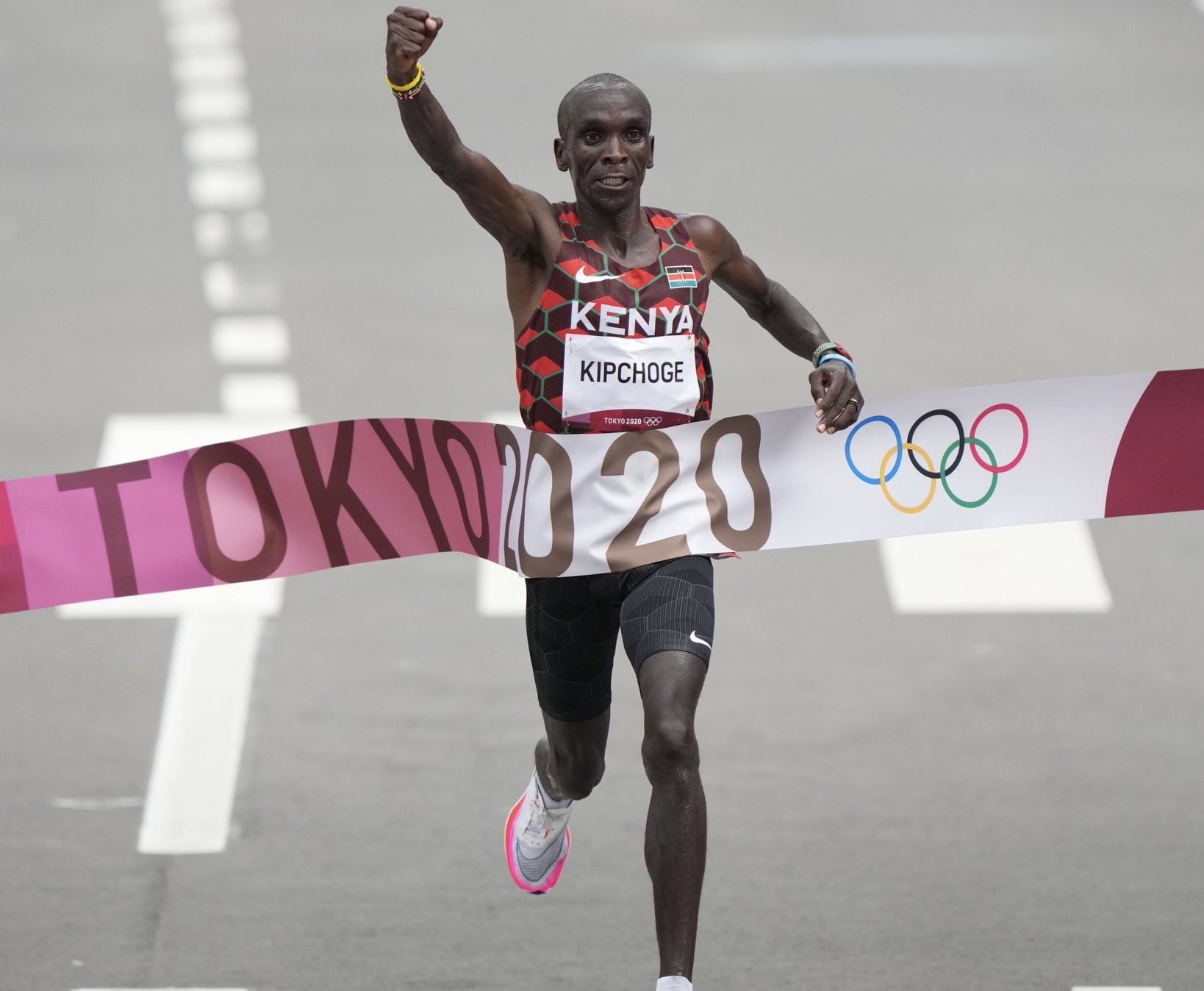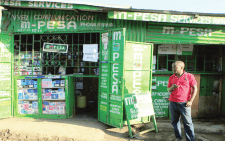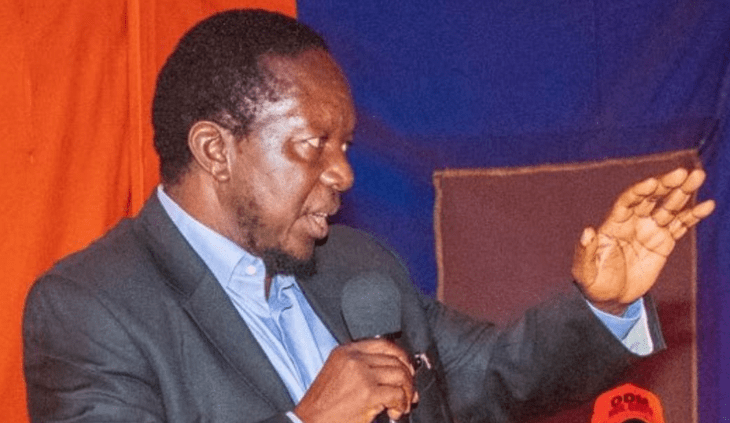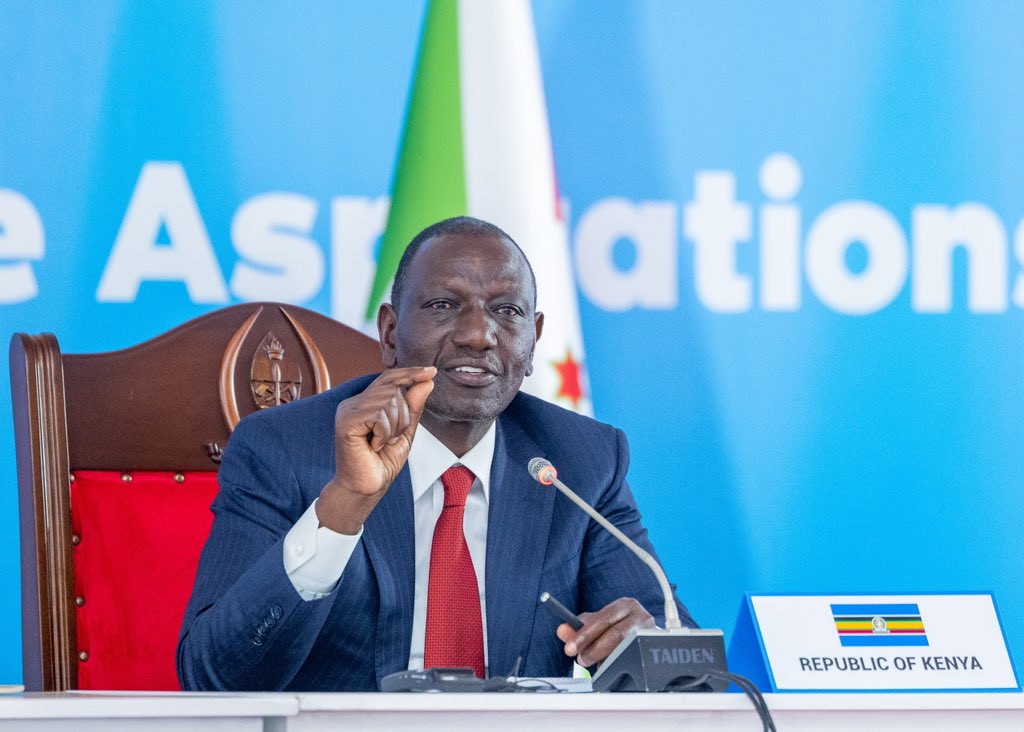Experts identify youth as pillars for food systems

As central and important pillars to the urgently needed transformation of agriculture and food systems in Africa, and Kenya is certainly no exception.
More than 880 youth from various countries actively participated in the Africa Food Systems Forum, the continent’s premier agricultural development and food and nutrition security event.
Young people account for a large percentage of the rural population, and are often unemployed, underemployed, despite the need for labour force in agriculture. Rural youth face many hurdles in trying to earn a livelihood.
Chief Olusegun Obasanjo, retired President of Nigeria, Africa’s largest economy, believes agriculture, rooted on a foundation of good governance, democratic ideals and respect for human rights could unlock the continent’s vast potential for growth, alleviate poverty and steer the course of economic recovery.
Often described as the ‘father of African agriculture’, he then started his agricultural business and has never looked back, becoming one of the country’s most successful farmers, even after he came back and was elected as a civilian president between 1999 and 2007.
A strong advocate for inclusion of the youth in agribusiness, Obasanjo says Africa must provide employment to the millions of youth and tap into the major opportunities in agribusiness.
Demographic disaster
To reap this demographic dividend and avoid a demographic disaster, African leaders must attract the youth to agriculture and agribusiness to put an end to the endless cycles of food crises that bedevil the continent.
He highlights the challenges confronting African agriculture – pests and disease infestation of crops, invasive weeds, soil infertility and salinity, climate change, greenhouse gas emissions and shortages of water and energy.
These challenges are often the reasons why the youth withdraw from agribusiness, he contends. So how do we attract the youth to agriculture and agribusiness? “The youth are dear to my heart. In 1970, I sent a young man to the farm in my village. Today he is the youngest farmer there, aged 75! This anomaly is replicated in farming communities throughout Africa.
“We must create employment in agriculture and agribusiness for the youth well aware that 60% of Africa’s population are aged under 25-30. The working population is underemployed or unemployed. We must make agriculture glamorous. How? You may ask. My answer is why do people go for rap? It is because it is glamorous!
“Look at my passport, my profession is indicated as ‘farmer’. This once got me in trouble in Canada passport control when I was told to step aside. My friend who had invited me told me I should have said I am in agribusiness, because in some parts of Canada, farmers are considered lowly persons!
To make agriculture and agribusiness glamorous, the first thing is to take infrastructure (roads) electricity and water to the rural areas. He says these services have enabled farming communities near Lagos and Ibadan to grow by as much as five times since he was born.
“Elegant ladies are now moving to settle in the villages from the cities, reversing the rural-urban migration trend for urban-rural migration. The innovation of biotechnology in agriculture could also make it attractive to young entrepreneurs.
They do not perceive agriculture as a remunerative or prestigious profession, and until they find meaningful economic opportunities and attractive environments in rural areas, they will continue to migrate to cities.
Growing unemployment
This trend contributes to over-urbanization and growing unemployment in urban areas but also affects global food production. Investing in young people living in rural areas is therefore key to enhancing agricultural productivity, boosting rural economies and ensuring food security.
This publication provides real life examples on how to re-engage youth in agriculture. It shows how tailor-made educational programmes can provide rural youth with the skills and insights needed to engage in farming and adopt environmentally friendly production methods. Many of the initiatives and approaches reported in this study originate from the youth themselves.
The forum was organized by AGRA, which has a team of more than 200 agricultural specialists across 11 priority countries to increase the access to farmers to high-quality farm inputs, financial support and markets.
AGRA, whose founding board chairperson was former UN Secretary-General, the late Kofi Annan, achieves this objective by strengthening governments’ agricultural policy development and establishing beneficial partnerships in the private sector.
During the forum that was held in Kigali, Rwanda from 4 to 7 September, the youth engaged and directly asked questions to leaders who included seven former heads of state and 37 ministers.
Significant commitments were made, partnerships formed, and investments mobilized in a renewed commitment to the transformation of the continent’s food systems. Over 5,000 participants, including 38 smallholder farmer groups from 92 countries, attended the event.
During their session with policymakers, the forum discussed how the Africa Food Systems Forum can support young people to learn and find jobs in food systems.
One female and one male winner of this year’s GoGettaz Agripreneurs dedicated to the youth were awarded $50,000 (Sh6,550,000) for leading scalable and impactful business and social ventures.
Through the Kigali Youth Declaration, the young people at the summit committed to being accountable for Africa’s food systems, a commitment which will be presented during the United Nations Climate Conference (COP29) in Baku, Azerbaijan.
The Kigali Youth Declaration calls on various stakeholders to amplify the voice of the young people, address the pressing issues of climate change and youth employment in Africa and explore strategies to accelerate youth access to work opportunities in the agricultural and food systems sector.
Earlier the youth had a session dubbed the Youth Mini Hackathon to pitch and get feedback from judges and mentors who selected the best five team pitches on innovative ideas on agricultural development and food and nutrition security.
Industry experts and peers provided feedback to the participating youth and the most promising pitches were awarded cash prizes ranging from $400 (Sh52,400) to $1,000 (Sh131,000).
Legacy [programmes
Cote d’Ivoire and Rwanda presented legacy programmes and called for support from development partners, private institutions and stakeholders for its implementation. The legacy programme initiative aims to transform the country;s food systems into operational, bankable investments that can be funded by partners and implemented over the next five years.
Rwanda’s case was compelling, as the country boasts a 2.3 per cent growth rate, with 27 per cent of GDP derived from agriculture. As the top-performing country in implementing the Comprehensive Africa Agriculture Development Programme (CAADP), Rwanda reinforced its commitment to advancing the sector.
Key goals for the Rwanda government include creating an enabling environment for youth employment, expanding avocado, chilli, and potato production through public-private partnerships, and enhancing the livestock sector, particularly beef and poultry. Rwanda’s total investment requirement stands at $6 billion (Sh786 billion).
Rwanda is a member East African Community (EAC), which works closely with Kilimo Trust, a not-for-profit organization engaged in sustainable market-led agricultural development research in the region for the past 18 years.
Currently, Rwanda is hosting a five-year project on youth agribusiness incubation in Rwanda, funded by the International Fund for Agricultural Development (IFAD) and Germany’s Federal Ministry for Economic Cooperation and Development (BMZ).
The Rural Youth Employment Opportunities: Support to Integrated Hubs in Rwanda (R-YES) project is part of a larger IFAD programme focusing on creation of employment opportunities for rural youth in Africa through support to integrated business hubs.
The goal of the project is to contribute suatainable employment (self and decent wage) and income generating opportunities for 3,000 youth (including 1,200 direct beneficiaries and 1,800 indirect) in agriculture related activities in Rwanda through an integrated agribusiness hub.
Emerance Mukeshimana, from the Rwanda R-YES agri-hub, urged the forum to also consider youth with disabilities.
Kilimo Trust CEO Dr Birungi Korutaro, who was a judge at the forum’s Youth Mini Hackathon and in a panel discussion on strategies to enhance youth engagement in the agri-food sector, said the R-YES project had made agribusiness a more attractive career choice for Rwanda youth previously inclined to white-collar jobs.
The success of the project which was launched during the Covid-19 pandemic has offered hope for replication in the other EAC countries of Burundi, the Democratic Republic of the Congo (DRC), Kenya, Tanzania and Uganda.
“Kilimo Trust has been working closely with TVETs and various agribusiness industries as centres of training and employment. Youths have gone through and graduated from the programme with 13 curriculums and 83 modules developed,” Dr Korutaro notes.
Trainees undertake short course training in 10 different agribusiness related courses refrigeration and cold chain management, operation and maintenance of industrial machinery, operation and maintenance of field irrigation, and poultry farming.
Other courses include milk processing, vegetables and potato production and processing, driving, operation and repair of farm tractors and machinery, meat processing, animal feeds formulation and forage/fodder production.
Through agribusinesses established by self-employed graduates, 20,000 smallholder farmers in Rwanda will benefit from the services provided by the training centers (hub) and youth graduates in collaboration with the Rwanda Youth in Agribusiness Forum and Rwanda Polytechnic.












